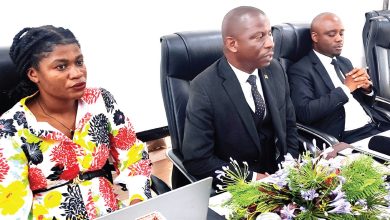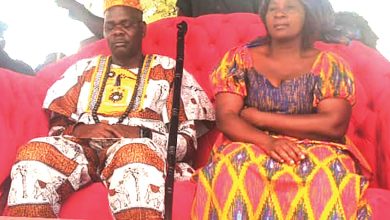Memory Chisenga: Sturdy voice for Malawi’s children
Her phone rarely stays silent. On the other end, it is often a desperate voice reporting a case of child abuse, rape, defilement, or neglect.
For many in Malawi’s rural communities, Memory Chisenga is the first call when children’s rights are under attack.

“It is like this every day. Even urban people call. I am everywhere. However, I am known in many villages where people trust me to take up these cases,” she says.
Over the years, Memory has thrown herself into countless cases involving children, offering protection services, education campaigns and following up on reported cases.
One incident still burns in her memory.
“A three-year-old girl was defiled by three men. One of them was the son of a rich man. They were trying to sweep the case under the carpet. But I refused. I pushed the police and followed it in courts. I even brought in other human rights bodies to ensure the case was concluded with speed,” she recalls.
That unshakable resolve has defined Memory’s activism since 2021 when she first stepped out of journalism.
Since then, she has handled about 200 cases across the country from Nsanje to Chitipa, ensuring children are heard.
Memory’s story begins in Thumbi Village,Traditional Authority Jalavikuba Munthali in Rumphi District where she was surrounded by traditions that saw girls and women as products.
One practice that troubled her was mbirigha.
She says under this tradition, if a couple failed to have children, the wife’s relatives would arrange another woman for the husband.
“In most cases, they chose from the wife’s sisters. If she had none, then it was her nieces. Painfully, most of these girls were too young for marriage,” she observes.
Memory adds that women were always blamed when families had no children.
“I grew up believing a man could never be barren. That is how the culture was constructed. Women were mocked and called humiliating and hurtful names. And they could not protest.”
Her perspective changed in secondary school.
“Biology taught us that infertility can affect both men and women. That knowledge made me want to educate people. It is also what drew me to journalism,” she says.
Memory went to Thumbi Primary School and Phwezi Girls Secondary School.
In 2013, she enrolled with the Malawi Institute of Journalism for a diploma in journalism before joining PLFM Radio in 2015 as a presenter.
It was at PLFM that she launched Atsikana Tiwale, a radio programme dedicated to girls’ rights and a special TV segment on human trafficking.
The programme became a platform for exposing child trafficking and amplifying children’s voices.
All these programmes connected Memory to local and international organisations such as Plan International Malawi and World Vision.
She visited their projects, document their activities and give children’s issues more attention.
In 2019, Memory joined Timveni Radio where she introduced Ndi Ufulu Wanga, a show focusing on emerging child rights issues.
The programme later won support from Norwegian Church Aid under the AGYW project.
At Timveni, Memory also carried forward her passion for anti-trafficking campaigns, taking the message to Malawi’s most rural corners.
“Some interviews broke me. Some children spoke about early marriages, abuse and many painful experiences. That is when I realised that advocacy through radio alone was not enough,” she recalls.
Memory used her savings to fuel her fight against child abuse.
Instead of pursuing personal comfort, she invested the money into her media company to support the vulnerable.
Today, Memory works as an independent child rights activist.
She finances her work from her own pocket, a decision that comes with both freedom and sacrifice.
“I chose to remain independent because that gives me wings to do what is right for children without interference from anyone, not even donors,” she says.
But that independence has come at a cost: “At times, I am threatened. People have targeted me, especially in certain high-profile cases,” she admits.
Despite the risks, Memory continues to collaborate with established human rights organisations, pooling efforts to protect children and pursue justice.
She salutes the determination of her mother, who insisted Memory stayed in school.
“I was lucky. But when I visited the village after secondary school, it pained me to see girls I grew up with married, with children, their dreams cut short. That pain fuelled my passion,” she says.
Today, she is more than just a community activist. She is a defender whose work has been recognised both locally and internationally.
She was named an emerging human rights defender. Worth Malawi listed her among the country’s 100 inspiring women in 2024.
Yet for Memory, the fight is far from over. Even as her activism grew, she knew she needed deeper knowledge to strengthen her work.
In 2023, she enrolled with the University of Africa in Lusaka, Zambia, to study law, aligning her studies with her passion for child rights.
“And until every child can grow without fear of abuse or exploitation, I will not rest. I wanted to understand the legal framework so I could fight for children better. Activism alone is not enough, I need the law on my side,” she explains.
Memory says the biggest gap in child justice in Malawi lies in the approach towards child abuse cases.
She criticises the justice system for delays in handling cases.
“Even the punishments or sentences given to perpetrators are not enough to deter potential offenders,” she says.
“Despite amendments to the penal code allowing for life imprisonment in grave cases, courts sometimes hand down minimal sentences, sending the wrong message about the seriousness of child abuse.”
Memory points out that communities are not adequately empowered to protect children from abuse.
“We always react to cases that have already happened. A child has already been abused by the time we step in,” she observes.
Memory advocates for the establishment of child care homes by government where abused children should be kept safe and away from their abusers.
She once dealt with cases where children were left vulnerable even after the abuser was granted police bail.
“We have seen cases where a man is given bail and returns to live in the same house with the children he abused. That is not safe,” she says.





